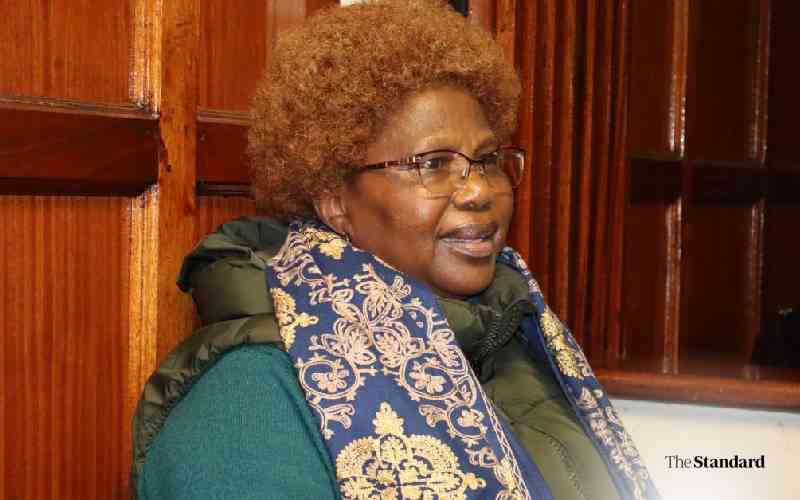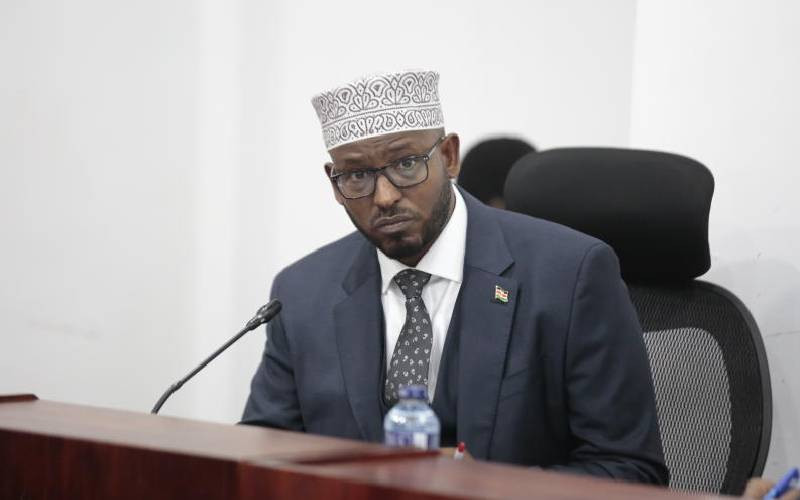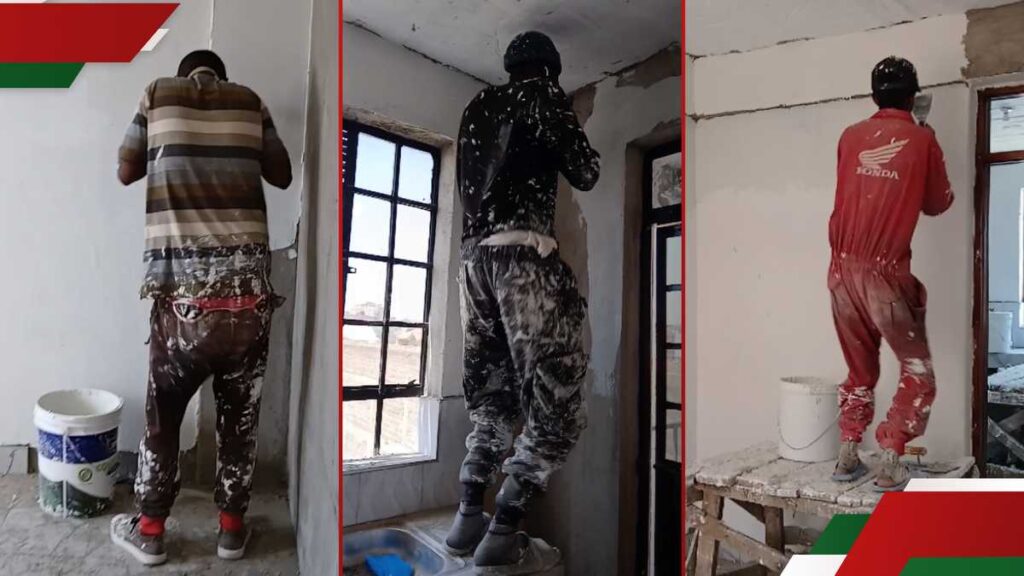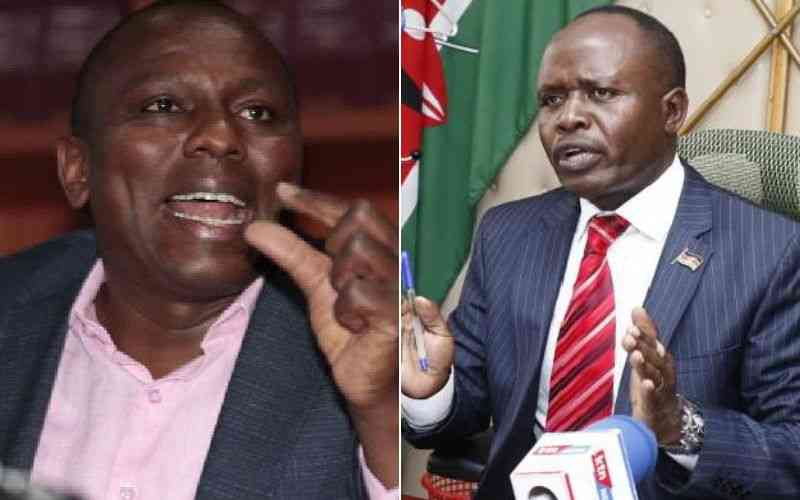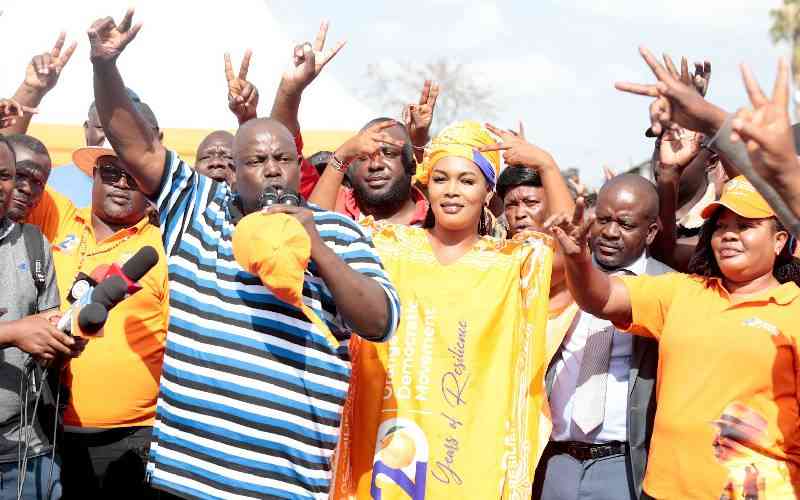Naivasha Member of Parliament Jayne Kihara has been released on a personal bond of Sh50,000 pending a court ruling on whether she will face charges of uttering offensive words.
Milimani Principal Magistrate Benmark Ekhubi granted the MP bail after her legal team objected to her taking a plea, arguing that the charge did not disclose any offence known in law.
Kihara’s lawyers, led by Senior Counsel Kalonzo Musyoka and advocate Ndegwa Njiru, urged the court to reject the plea taking and dismiss the charges, terming the prosecution a politically motivated witch-hunt.
“We urge you not to have the MP plead to the charges as we believe her prosecution is pure political persecution. The charges before you are based on a section that is non-existent in law. Your Honour, freedom of expression is expressly provided for under the Constitution. The charges that have been brought against MP Kihara don’t disclose an offence,” Kalonzo submitted.
According to the charge sheet, the Directorate of Public Prosecutions (DPP) intends to charge the MP with offensive conduct conducive to a breach of the peace, allegedly committed during a public gathering in Nairobi on July 8, 2025.
The charges are brought under Section 94(1) of the Penal Code, Cap 63, Laws of Kenya.
However, her legal team maintains that the section under which she is charged is outdated and legally defunct.
Kalonzo further told the court that other politicians have made similarly provocative statements in public without being charged or prosecuted.
“It is that men and women, and MPs, including Kihara, if they were to be arraigned in court, this would be the worst-case scenario. Some MPs are on record saying they would transport goons to make sure that Saba Saba did not happen, and they have never been arrested or arraigned,” he said.
The defence asked the court to find the charge unlawful and release the MP unconditionally.
“We urge this court to find that the charges are illegal, defective, and release her unconditionally,” Njiru submitted, calling on the magistrate to invoke powers under Section 4 of the Magistrates Act.
Citing Article 33 of the Constitution, which protects freedom of expression, Njiru challenged the charge against Kihara, arguing that it may constitute a violation of a fundamental right.
He also questioned the relevance and legality of Section 94(1) of the Penal Code, stating it was enacted in 1930 and should be reviewed in light of the current constitutional framework.
“The section under which this charge has been framed, Section 94(1) of the Penal Code, was enacted in 1930, with the commencement date being August 1, 1930. It follows, therefore, that with the enactment of the new Constitution, the ODPP, who has arraigned MP Kihara here, ought to be alive to Section 7 of the Sixth Schedule of the Constitution,” Njiru argued.
Stay informed. Subscribe to our newsletter
Njiru also blamed Parliament for failing to repeal obsolete laws, leaving Kenyans vulnerable to arbitrary prosecutions.
“If we had a proactive Parliament, this section would not exist in our books. But Parliament has become negligent. Are we left helpless? Does the DPP have the liberty to charge any other person because Parliament has refused to legislate?” ” he said.
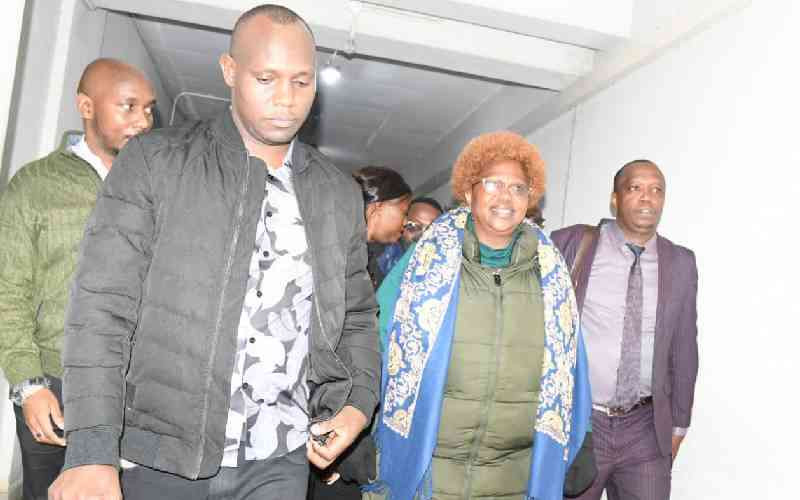
In conclusion, Njiru urged the court to consider Articles 19, 21, 27, and 33 of the Constitution, as well as Section 89 of the Criminal Procedure Code, in deciding whether to proceed with the case.
The prosecution, through State Counsel Victor Owiti, firmly opposed the defence’s request to halt the prosecution of the lawmaker, asserting that the case had merit and should proceed to a full hearing.
Owiti maintained that the charge against the MP, ‘offensive conduct conducive to a breach of the peace’, was properly framed under Section 94(1) of the Penal Code and that the court had no grounds to dismiss it at the preliminary stage.
While acknowledging that the alleged offence is classified as a misdemeanor, Owiti argued that this did not invalidate the charge or warrant its dismissal.
He noted that the law remains enforceable unless declared unconstitutional or repealed by Parliament, and insisted that the prosecution had followed due process in bringing the charge before the court.
However, Owiti clarified that the prosecution did not object to the MP being released on bond, in light of the offence’s non-capital nature and the absence of compelling reasons to deny bail.
“We were not going to oppose bail if plea was taken,” he said, adding that the accused had not demonstrated sufficient legal grounds to block the proceedings.
The case will be mentioned on July 29, when the court is expected to rule on whether MP Kihara will plead to the charges.








